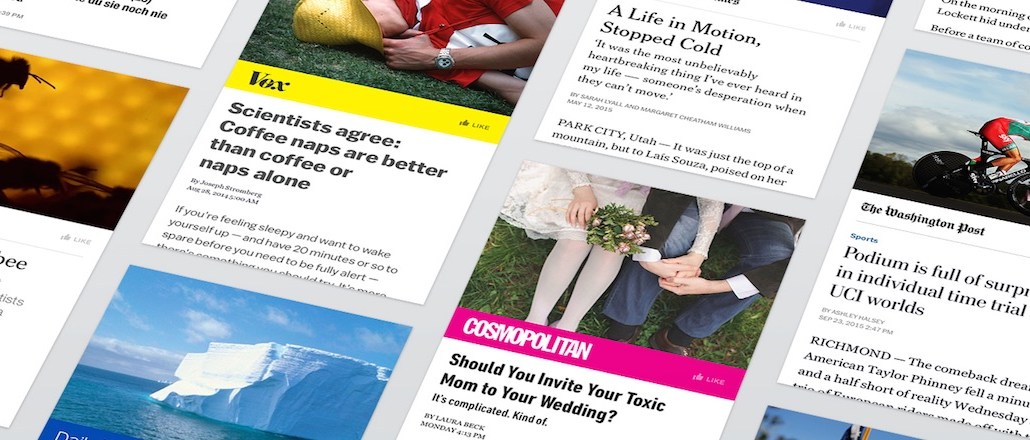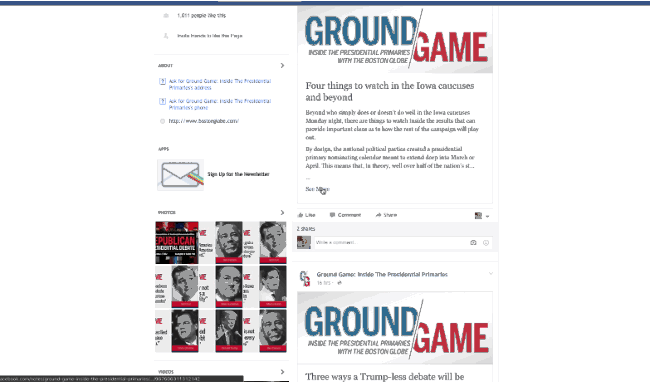Last chance to save on Digiday Publishing Summit passes is February 9

It’s no Instant Articles, but Facebook’s Notes feature is giving The Boston Globe another way to post directly to the Facebook platform.
On Tuesday the newspaper started to use Notes with Ground Game, its newsletter covering the presidential elections, which the Globe posted to the newsletter’s Facebook page. The Globe followed that up a day later by using Notes to create a post listing the top stores on Boston.com. It plans to continue experimenting with the feature on its other properties.
Unlike The New York Times and The Washington Post, The Boston Globe hasn’t signed on as an Instant Articles partner, but it’s still eager to “get really good at” any new publishing feature that Facebook rolls out, said Boston Globe social media director Matt Karolian. “This is clearly a chance to reach more people and engage with them better, especially with longer form content,” he said.
Notes, an early Facebook staple, stagnated for years until last September, when Facebook updated the feature with a cleaner, more customizable design and editing tool reminiscent of Medium. Facebook’s taking its time building Notes, but the feature is clearly the first steps of an inevitable, more fleshed-out Facebook CMS.

Unlike video posted directly to Facebook, there’s no hint that Notes posts get special treatment by Facebook’s algorithm, or even more interest from readers (The Boston Globe’s Ground Game posts have been shared fewer then 10 times so far). But the Note’s user experience is compelling enough for the Globe to keep pushing the format, despite the low interest from readers. Like publishers’ Instant Articles, Notes posts load quickly directly within Facebook, something that’s particularly attractive on mobile devices, where users are far more sensitive to slow load times. Notes offers its own set of metrics, which let publishers know how many of their readers and page followers have read the posts.
Still, Facebook does have a lot of work to do to put notes on the same level with WordPress or Medium. The feature doesn’t yet support YouTube video embeds, for example, or Instagram posts, more surprisingly. It’s also unlikely that Facebook will let publishers monetize their notes posts anytime soon.
“That stuff is kind of disappointing,” Karolian said. “But this feels very much a minimum viable product for them.”
More in Media

In Graphic Detail: The scale of the challenge facing publishers, politicians eager to damage Google’s adland dominance
Last year was a blowout ad revenue year for Google, despite challenges from several quarters.

Why Walmart is basically a tech company now
The retail giant joined the Nasdaq exchange, also home to technology companies like Amazon, in December.

The Athletic invests in live blogs, video to insulate sports coverage from AI scraping
As the Super Bowl and Winter Olympics collide, The Athletic is leaning into live blogs and video to keeps fans locked in, and AI bots at bay.





